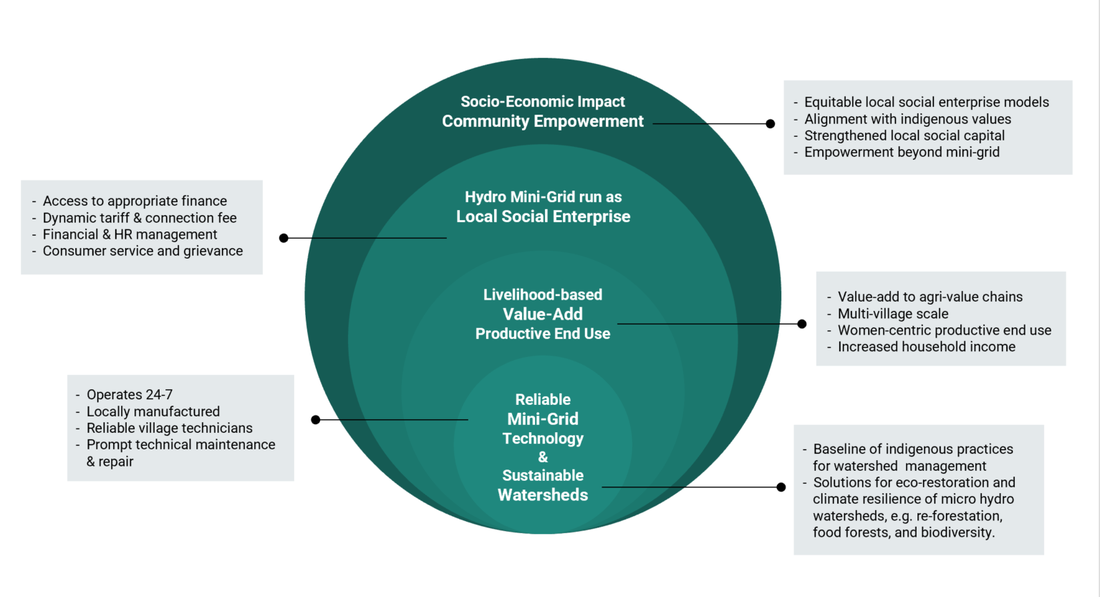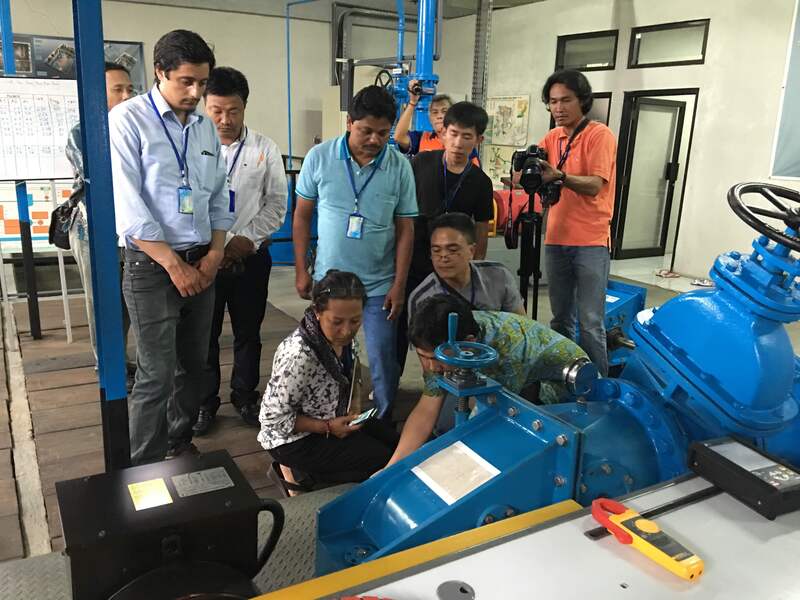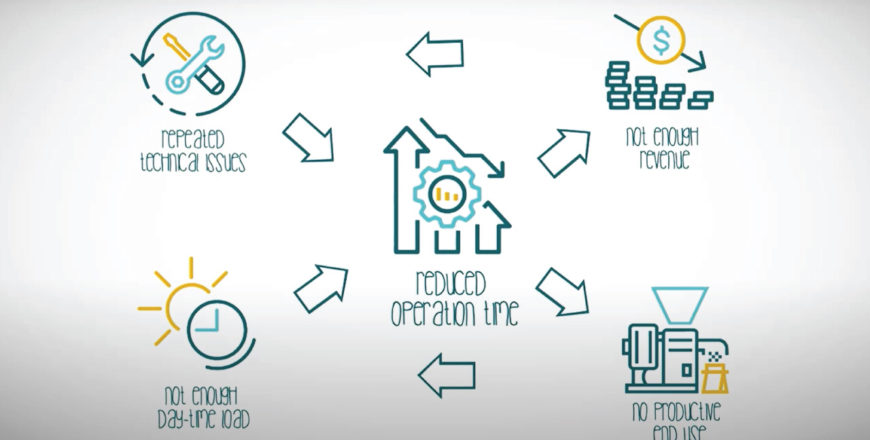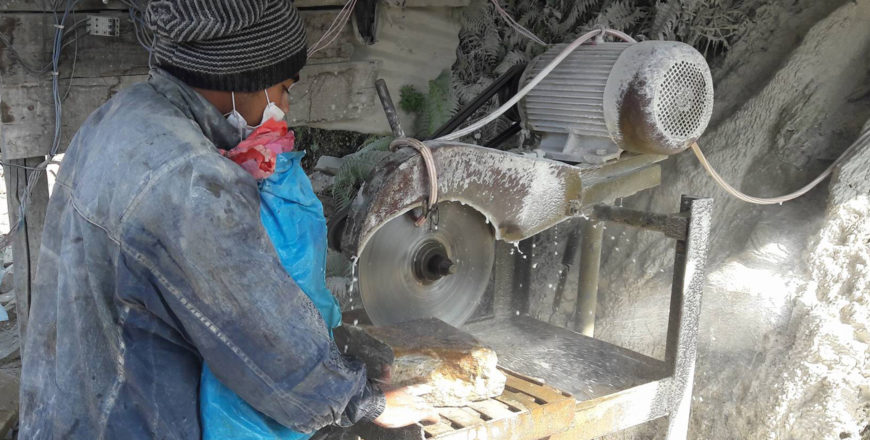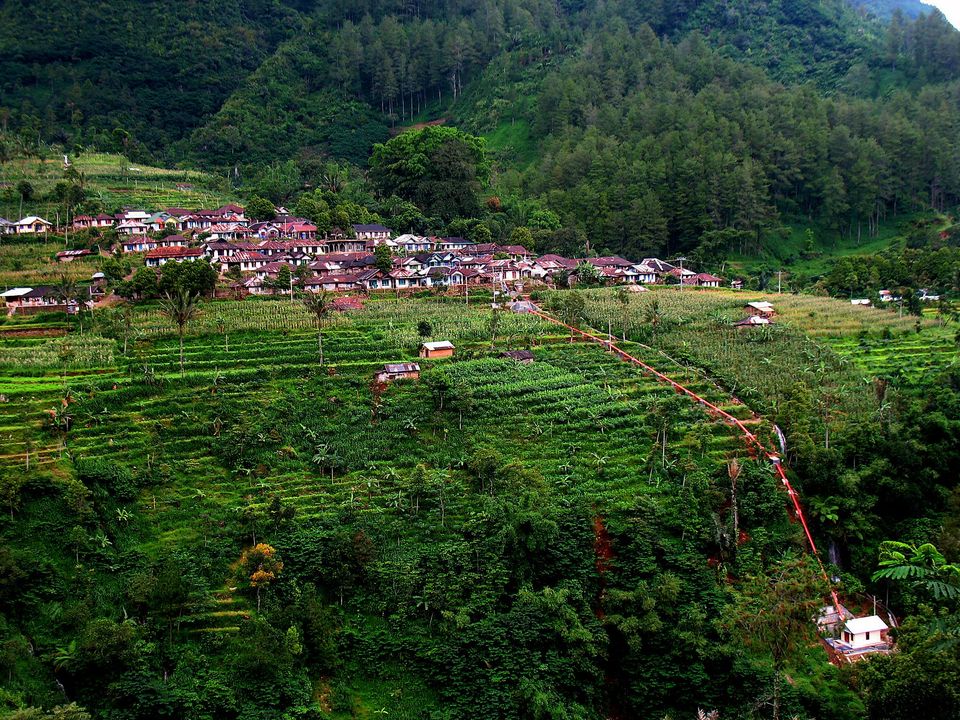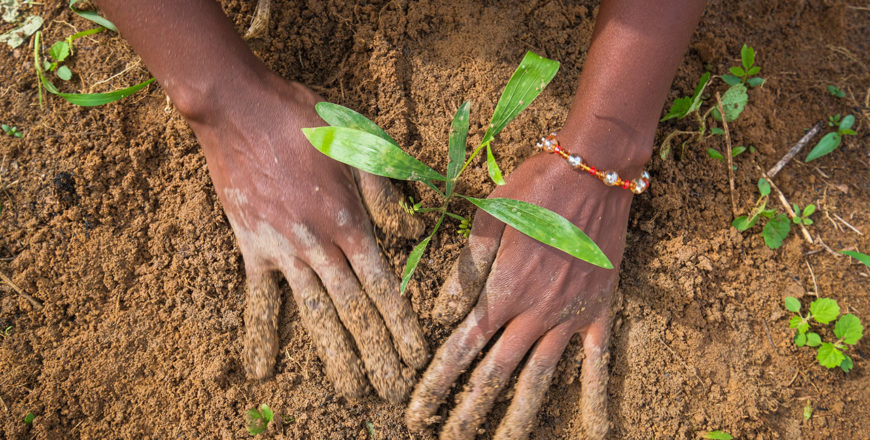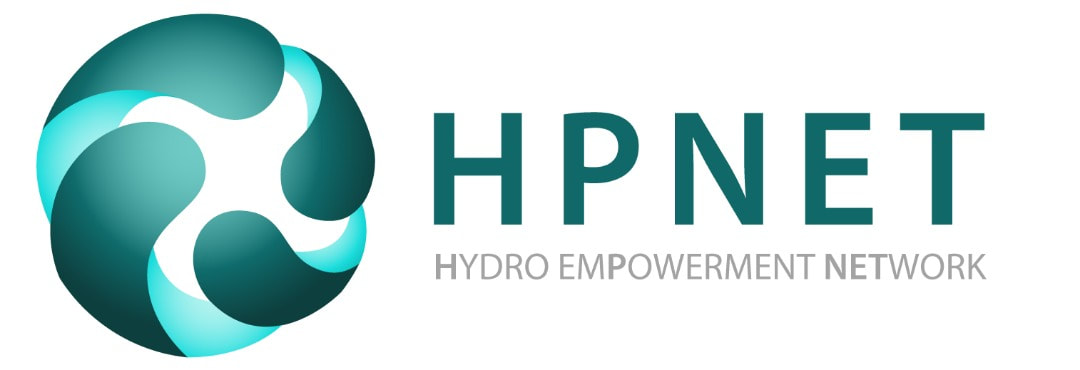Social Enterprise for Energy, Ecological and Economic Development (SEEED) is HPNET’s approach for community-scale hydro implementation, based on the core elements needed to optimize hydro mini-grid sustainability, local socio-economic benefits, and climate resilience. The core elements of SEEED are shown below.
- Fundamentals of Community-Scale Hydro Mini-Grids
- Climate Resilient Solutions to Hydro Mini-Grids
- Agroecological Benefits of Hydro Mini-Grids
The first course was hosted over 6 weeks during February and March, 2022, and focused on technical and local enterprise aspects of community hydro systems. The course began with a live Kick-off Session overviewing HPNET’s SEEED Initiative and introducing the course instructors, modules and e-learning platform. The curriculum provided participants with a solid introduction – and, for some, some a useful refresher – on the fundamental elements of sustainable community-scale hydropower implementation.
Course modules included:
- Orientation to Hydro Mini-Grids
- Social Enterprise Models for Mini-Grids
- Demand Assessment
- Water Resource Assessment
- Terrain Assessment
- Power Output Design
In addition to independent learning, weekly live sessions provided opportunity for peer-to-peer dialogue and engagement with instructors. Participants joined from a range of backgrounds and the organizing team in turn learned a lot from participants who shared their experiences during the live sessions. In total, 211 people registered representing 43 countries and feedback has been overwhelmingly positive. We are very pleased by the turnout and response for our first course of the E-Learning series!
Sustainable watersheds are the foundational element of SEEED because hydro mini-grid sustainability relies on healthy forested watersheds; in turn, hydro mini-grids incentivize watershed restoration and stewardship. In the context of the global climate crisis, ecosystem health is all the more important for ensuring climate resilient hydro mini-grids and communities.
With this in mind, the second SEEED E-course focused on solutions for enabling climate resilient hydro mini-grids. The course oriented participants to the important role of traditional ecological knowledge and environmental governance systems of Indigenous and local communities. It then introduced the key phases of watershed management for hydro mini-grids and practical examples of watershed treatment, such as reforestation, agriculture-related solutions, and built structures for managing flooding and erosion.
The course modules included:
- Orientation to Community-Scale Hydropower
- Climate Resilient Watersheds of Hydro Mini-Grids
- Phases of Watershed Management for Hydro Mini-Grids
- Watershed Treatment for Hydro Mini-Grids
To kick off the course, we were privileged to have Hon. Adrian Banie Lasimbang join us as a speaker, who is an Advisor for TONIBUNG and JOAS and serves on the boards of the Right Energy Partnership (REP) and HPNET. Watch the recording for insights on the role of Indigenous communities in the water-energy-food-forests-livelihoods nexus.
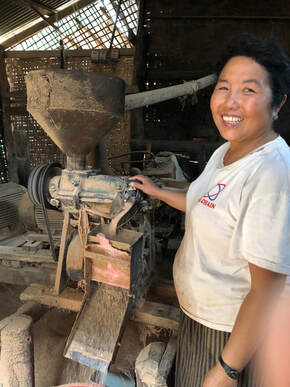 Owner of rice mill powered by a cooperative-owned micro hydro system in Shan State. Credit: D. Vaghela.
Owner of rice mill powered by a cooperative-owned micro hydro system in Shan State. Credit: D. Vaghela. According to the UN Food and Agriculture Organization (FAO), agroecology is “a holistic and integrated approach that simultaneously applies ecological and social concepts and principles to the design and management of sustainable agriculture and food systems.” Agroecology presents an integrative approach that generates multiple benefits for people and nature. The latest course of the series introduces the integration of community-scale hydropower with agroecology for mutual benefits. Alongside refresher modules from Course 1 and 2, the key module is “Impact of Community Hydro on Agroecology”, which covers:
- Agroecology and Climate Resilient Livelihoods
- Integrating Community Hydro with Agroecology
- Food Forests for Community Hydro Catchment Areas
In conjunction with Courses 2 and 3, a field-based workshop was conducted in Sitio Gawaan Proper, Kalinga Province, Philippines, to build the capacity of local practitioners and community members to develop climate resilient hydro mini-grids and leverage benefits at the nexus of water, energy, food, forests and livelihoods. Read more here.
Upcoming SEEED E-Learning Courses
Registration is now open for the next SEEED E-Learning course, Local Manufacturing of Turgo Turbines. The course will take place over 5 days in late June, 2022, and is designed for experienced manufacturers of hydro mini-grids. Click here to learn more.
To stay in-the-loop on SEEED E-Learning opportunities, sign up for our newsletter!
